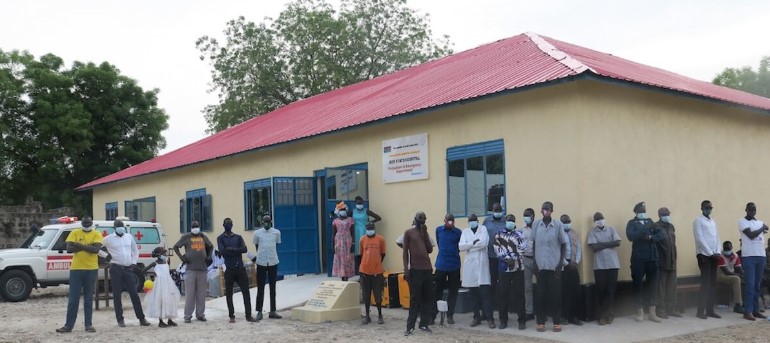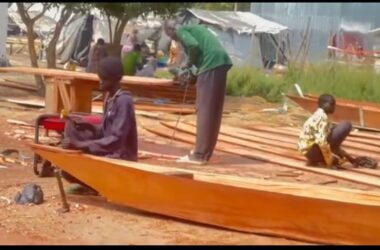By Manas James Okony
The Bor State Hospital, the main referral health facility in the capital of Jonglei State, has been shut down amid a strike by staff protesting their transfer to other locations outside the town.
The closure comes at a crucial time when access to healthcare is vital for the local population.
Located in Bor, the hospital serves as a lifeline for residents in a state that often faces challenges such as limited healthcare resources and inadequate infrastructure. Despite these difficulties, the facility has been pivotal in providing essential medical services to the community. However, recent decisions by the Ministry of Health have led to unrest among some of its staff.
Since Friday, the hospital’s main gate, outpatient department (OPD), laboratory, antenatal care unit, expanded program on immunization (EPI) unit, water supply system, and medical director’s office have all remained closed. This shutdown was prompted by an order from the health ministry that mandated the transfer of several hospital staffers to Primary Health Care Centers (PHCCs) and county hospitals outside the state capital.
The disgruntled staff allege that their transfers were executed without proper procedure. They expressed concerns about the suitability of the new locations, including Baidit, Makuach, and Kolnyang Payams, which they claim are uninhabited or poorly equipped.
Dr. Majok Philip, the medical director of Bor State Hospital, confirmed the ongoing closure in a conversation with No. 1 Citizen Daily Newspaper on Tuesday.
He stated that the hospital was closed most on Friday and temporarily reopened over the weekend before another shutdown since Monday.
“However, since Monday, it was shut down again. Our patients are denied access to the hospital, and as a result, a woman gave birth at the gate this morning. I am currently inside the hospital managing any patients who make it through the gate, but my office is locked,” he said.
Dr. Majok called for government intervention, noting that efforts to engage with the striking staff had failed, as they refused to communicate with hospital management.
Earlier this year, medical professionals from Jonglei State petitioned the state government regarding poor remuneration and infrastructure, appealing for improvements to the deteriorating conditions of the hospital.
Another hospital staff member, Dr. David Tor, also confirmed the facility’s closure.
“These staffers, mainly birth attendants, clinical officers, and other unclassified personnel, are protesting their transfer from the main hospital to facilities like Baidit Hospital, Kolmerek PHCC, and Pariak PHCC. We have tried to persuade them to keep the hospital open while they seek resolution from the ministry, but they have remained steadfast,” he stated.
Dr. Tor further explained, “These changes being implemented are part of the ministry’s policy and the Doctors’ Union advocacy for an improved health system. In an assessment conducted in February, it was recommended that Bor State Hospital should have nine general practitioners and five specialists. Based on that recommendation, we now have two additional practitioners and specialists including a gynecologist, pediatrician, physician, general surgeon, and dentist. However, the unclassified staffers were supposed to be transferred, leading to the current conflict.”
Community members are deeply concerned about the implications of the hospital’s shutdown.
One Bor resident and former staffer, Dr. Ajak Garang, emphasized the risks associated with the closure, stating, “Bor State Hospital is the main hospital for the nine counties serving a population of 1.3 million people. The hospital is run like a family business by individuals who resist changes made by the state government. Due to the protest, a pregnant mother died at Baidit Hospital from anemia just the previous day after being denied access by these unqualified protestors.”
He continued, “Additionally, this Tuesday morning, a woman who suffered from postpartum hemorrhage was denied entry and had to be rushed to a UNMISS facility. If these protestors were medical professionals, they would understand the concept of safe closure, where care is provided to those in critical condition during protests. The government must intervene, and someone needs to be held accountable for the loss of life.”
In response to the crisis, Nyamar Lony, the information minister, stated that the government is aware of the hospital’s closure and is taking steps to ensure the swift resumption of operations at the facility.




